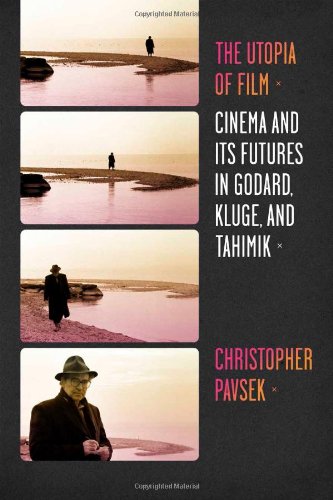

Most ebook files are in PDF format, so you can easily read them using various software such as Foxit Reader or directly on the Google Chrome browser.
Some ebook files are released by publishers in other formats such as .awz, .mobi, .epub, .fb2, etc. You may need to install specific software to read these formats on mobile/PC, such as Calibre.
Please read the tutorial at this link: https://ebookbell.com/faq
We offer FREE conversion to the popular formats you request; however, this may take some time. Therefore, right after payment, please email us, and we will try to provide the service as quickly as possible.
For some exceptional file formats or broken links (if any), please refrain from opening any disputes. Instead, email us first, and we will try to assist within a maximum of 6 hours.
EbookBell Team

4.7
26 reviewsThe German filmmaker Alexander Kluge has long promoted cinema's relationship with the goals of human emancipation. Jean-Luc Godard and Filipino director Kidlat Tahimik also believe in cinema's ability to bring about what Theodor W. Adorno once called a "redeemed world."
Situating the films of Godard, Tahimik, and Kluge within debates over social revolution, utopian ideals, and the unrealized potential of utopian thought and action, Christopher Pavsek showcases the strengths, weaknesses, and undeniable impact of their utopian visions on film's political evolution.
He discusses Godard's Alphaville (1965) against Germany Year 90 Nine-Zero (1991) and JLG/JLG: Self-portrait in December (1994), and he conducts the first scholarly reading of Film Socialisme (2010).
He considers Tahimik's virtually unknown masterpiece, I Am Furious Yellow (1981--1991), along with Perfumed Nightmare (1977) and Turumba (1983); and he constructs a dialogue between Kluge's Brutality in Stone (1961) and Yesterday Girl (1965) and his later The Assault of the Present on the Rest of Time (1985) and Fruits of Trust (2009).